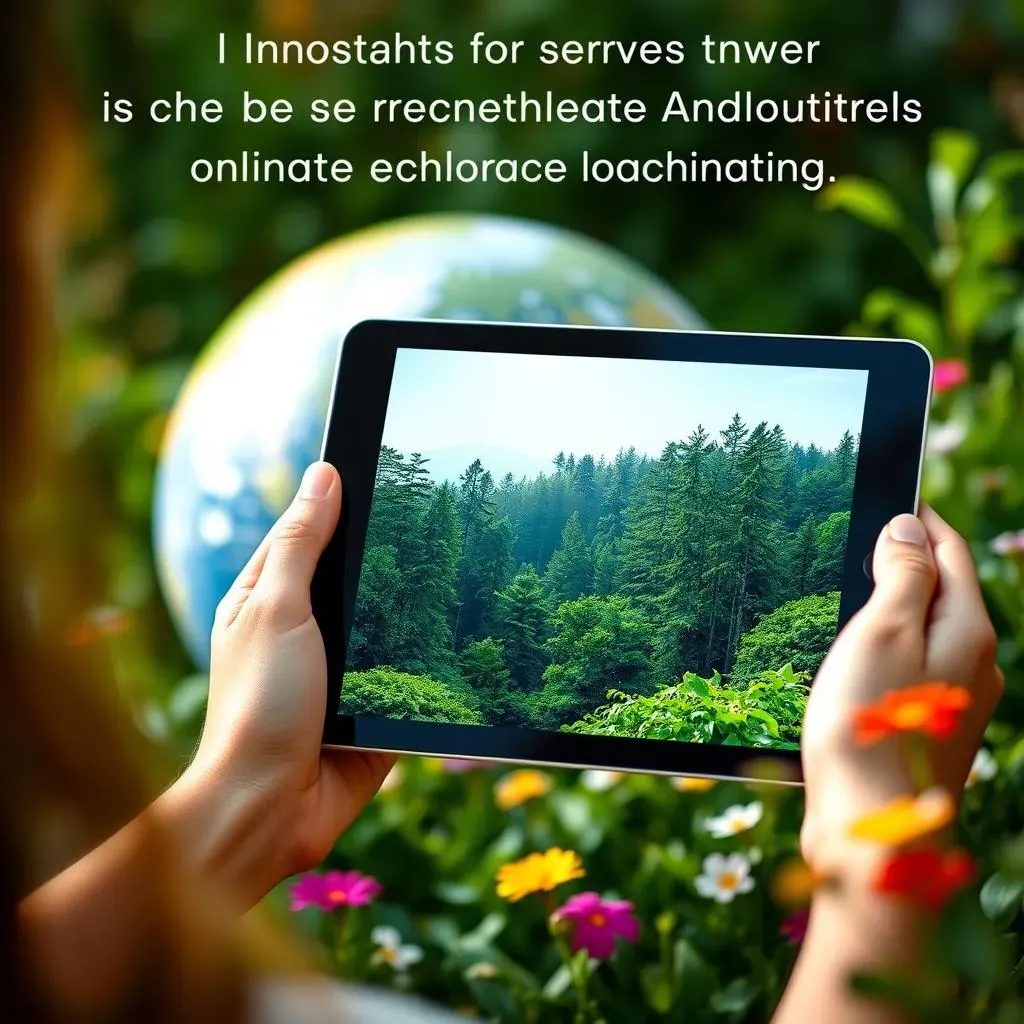Table of Contents
Protecting our planet requires collective action, and that starts with securing the resources needed to fund vital environmental initiatives. This article explores the exciting world of online environmental fundraising ideas, providing you with a practical guide to raising funds for your favorite environmental causes. We'll move beyond tired fundraising strategies and dive into innovative approaches that leverage the power of the internet to maximize your impact. Discover how to craft compelling online campaigns, harness the reach of social media, and track your progress effectively. Whether you're a seasoned fundraiser or just starting out, this guide will equip you with the knowledge and tools to launch successful online campaigns and make a real difference. Get ready to learn effective strategies that turn online engagement into tangible results for environmental protection. This journey into the realm of online environmental fundraising ideas will empower you to make a significant contribution to a healthier planet. Let's explore the best online environmental fundraising ideas together!
Innovative Online Environmental Fundraising Strategies

Innovative Online Environmental Fundraising Strategies
Crowdfunding Platforms: Your Gateway to Global Giving
Forget the dusty donation jars! Today, crowdfunding platforms like GoFundMe, Kickstarter, and Indiegogo offer powerful tools to reach a global audience. These platforms provide pre-built templates, integrated payment processing, and even social media sharing features, making it easier than ever to launch a successful environmental campaign. Think of it like this: you're not just asking for donations; you're building a community of passionate supporters who believe in your cause.
Crafting a compelling campaign page is crucial. Start with a strong headline that grabs attention and clearly states your mission. Use high-quality images and videos to showcase the impact of your work. Tell a story—people connect with narratives, not just statistics. Finally, set realistic fundraising goals and provide regular updates to keep your supporters engaged and informed. Remember, transparency builds trust.
Platform | Pros | Cons |
|---|---|---|
GoFundMe | Easy to set up, large user base | Higher fees than some competitors |
Kickstarter | Strong community, ideal for creative projects | All-or-nothing funding model |
Indiegogo | Flexible funding models, international reach | Can be more complex to navigate |
Subscription Models: Cultivating a Community of Committed Donors
Instead of relying on one-time donations, consider a subscription model. Platforms like Patreon and Substack allow you to offer exclusive content, behind-the-scenes access, and regular updates to your supporters in exchange for recurring monthly contributions. Imagine offering members-only webinars on sustainable living, early access to your organization's reports, or even personalized thank-you notes. This fosters a deeper connection with your audience, turning them into loyal advocates for your cause.
Think about what unique value you can offer your subscribers. What kind of content would they find engaging and exclusive? What perks would make them excited to contribute monthly? Remember, the key is to provide consistent value and build a strong, engaged community. This long-term approach can lead to more reliable and sustainable funding for your environmental projects.
- Offer exclusive content (e.g., webinars, ebooks, podcasts)
- Provide behind-the-scenes access to your work
- Create a members-only community forum
- Offer personalized thank-you notes and gifts
Harnessing the Power of Social Media for Online Environmental Fundraising

Harnessing the Power of Social Media for Online Environmental Fundraising
Strategic Social Media Engagement for Environmental Causes
Social media isn't just a place to share cute cat videos; it's a powerful fundraising tool! Platforms like Facebook, Instagram, Twitter, and TikTok offer incredible reach, allowing you to connect with potential donors worldwide. The key is creating engaging content that resonates with your audience. Think eye-catching visuals, compelling stories, and calls to action that inspire people to donate. Don't just post; interact! Respond to comments, run polls, and host Q&A sessions to build a community around your cause.
Consider using a mix of content formats—videos, infographics, photos, and even live streams—to keep your audience engaged. Run contests and giveaways to incentivize participation. Partner with influencers who share your values to expand your reach. Remember, consistency is key. Regular posting keeps your cause top-of-mind with your followers, increasing the likelihood of donations.
Platform | Best Content Type | Engagement Strategy |
|---|---|---|
Videos, live streams, articles | Run polls, host Q&A sessions, join relevant groups | |
High-quality photos and videos, stories | Use relevant hashtags, collaborate with influencers | |
Short, impactful messages, links to articles | Engage in relevant conversations, use trending hashtags | |
TikTok | Short, engaging videos, challenges | Collaborate with creators, participate in trending challenges |
Leveraging Influencer Marketing and Paid Advertising
Partnering with environmental influencers can significantly boost your campaign's visibility and credibility. Influencers can introduce your cause to their followers, generating excitement and driving donations. However, choose influencers carefully, ensuring their values align with your organization's mission. Authenticity is key; forced endorsements rarely work.
Paid social media advertising can also be a powerful tool. Platforms like Facebook and Instagram offer targeted advertising options, allowing you to reach specific demographics interested in environmental causes. Experiment with different ad formats and targeting parameters to optimize your campaign's performance. Always track your results to see what's working and adjust your strategy accordingly.
- Identify relevant environmental influencers
- Collaborate on sponsored posts and videos
- Negotiate fair compensation and clear deliverables
- Track influencer campaign performance
Running Successful Online Campaigns for Environmental Causes

Running Successful Online Campaigns for Environmental Causes
Setting Clear Goals and Defining Your Target Audience
Before you even think about launching your campaign, you need a rock-solid plan. What are you trying to achieve? Are you aiming for a specific fundraising target, or are you focused on raising awareness? Defining your goals upfront will help you stay focused and measure your success. Equally important is understanding your target audience. Who are you trying to reach? What are their interests and motivations? Tailoring your messaging and platform choices to your audience will significantly improve your chances of success. Think of it like fishing—you wouldn't use the same bait for every kind of fish, right?
Use data to inform your decisions. Analyze past campaigns (if you have any) to identify what worked and what didn't. Research your target audience's online behavior to understand where they spend their time and what kind of content resonates with them. Don't just guess; use data to guide your strategy. Remember, a well-defined target audience and clear goals are the foundation of a successful campaign.
Goal Type | Metrics | Example |
|---|---|---|
Fundraising | Total donations, average donation size, donor acquisition cost | Raise $10,000 to fund a reforestation project |
Awareness | Website visits, social media engagement, media mentions | Increase awareness of plastic pollution by 20% |
Crafting a Compelling Narrative and Building Community Engagement
Now for the fun part: storytelling! People connect with stories, not just statistics. Craft a compelling narrative that highlights the urgency of your cause and the impact of your work. Show, don't just tell. Use powerful visuals and testimonials to bring your story to life. Think about the emotional impact you want to create. Do you want to inspire hope, outrage, or a sense of urgency? Let your emotions guide your message.
Building a strong sense of community is also crucial. Encourage interaction and participation. Host online events, Q&A sessions, and contests to engage your audience. Respond to comments and messages promptly to show that you value your supporters' input. Remember, a successful campaign is more than just raising money; it's about building a movement. And a movement needs people who feel connected to the cause and to each other.
- Share personal stories of impact
- Use high-quality photos and videos
- Highlight the urgency of the environmental issue
- Make it easy for people to donate and share your campaign
Measuring the Success of Your Online Environmental Fundraising Initiatives

Measuring the Success of Your Online Environmental Fundraising Initiatives
Key Metrics for Evaluating Your Campaign's Performance
So, you've launched your online environmental fundraising campaign. Now what? It's not enough to just raise money; you need to understand *how* you're doing it. Tracking key metrics is essential for evaluating your campaign's success and making data-driven adjustments along the way. Think of it like navigating with a map – you need to know where you've been, where you are now, and where you're going to effectively reach your destination. Don't just focus on the total amount raised; delve into the details! What's your average donation size? How many unique donors have you acquired? What's your donor acquisition cost (how much did it cost to acquire each new donor)? Understanding these metrics provides valuable insights into campaign efficiency and informs future strategies.
Consider using a CRM (Customer Relationship Management) system to manage your donor data and track your progress. Many platforms offer built-in analytics dashboards, providing easy access to key metrics. Regularly review your data to identify trends, successes, and areas for improvement. This data-driven approach ensures you’re not just raising funds; you’re optimizing your fundraising efforts for maximum impact. Remember, consistent monitoring and analysis are crucial for long-term success.
Metric | Description | How to Track |
|---|---|---|
Total Donations | The overall amount of money raised | Crowdfunding platform analytics, CRM |
Average Donation Size | The average amount donated per donor | Crowdfunding platform analytics, CRM |
Number of Unique Donors | The total number of individual donors | Crowdfunding platform analytics, CRM |
Donor Acquisition Cost | The cost of acquiring a new donor | Marketing spend divided by number of new donors |
Analyzing Your Results and Refining Your Strategy
Once you've collected your data, it's time to analyze it! What stories do the numbers tell? Did your campaign reach your fundraising goal? If not, why not? Were there any unexpected hurdles or successes? Analyzing your results helps you understand what worked, what didn't, and what you can improve for future campaigns. This is where the real learning happens! Don't be afraid to experiment and try new approaches. Perhaps your initial target audience wasn't the best fit, or maybe your messaging could be more compelling. The beauty of data is that it provides concrete evidence to guide your decisions.
Use your findings to refine your strategy for future campaigns. Consider A/B testing different messaging or visuals to see what resonates best with your audience. Explore new platforms or marketing channels. Continuously iterate and improve your approach based on your data analysis. Remember, fundraising is an ongoing process, and continuous improvement is key to long-term success. The more you understand your audience and what motivates them, the more effectively you can reach them and inspire them to support your environmental cause.
- Identify your top-performing marketing channels
- Analyze donor demographics and giving patterns
- Refine your messaging and visuals based on data
- Experiment with new fundraising strategies
